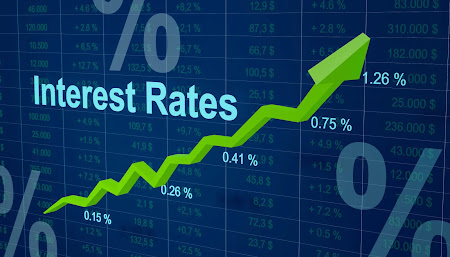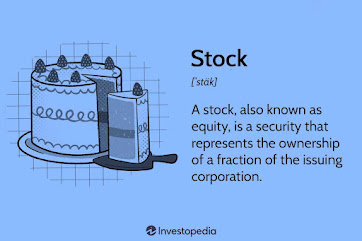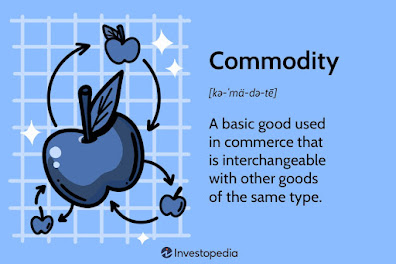Inflation: A Blessing in Disguise for the Rich
(Jahanzaib khan)
You know that nagging feeling that your money isn't going as far these days? The rising prices at the gas station and grocery store that seem to be outpacing your paychecks. That's inflation rearing its ugly head. While inflation often feels like a financial nuisance for most of us, it can actually be a blessing in disguise for the wealthy. The rich have the means to take advantage of inflation in ways average folks can't.
How Inflation Benefits the Wealthy
When inflation rises, the wealthy often benefit the most. How is that possible? Simple. The rich have the means to put their money in places that keep up with inflation, like in money market, government securities, fix income bonds and securities, stocks, real estate, and commodities.
You, on the other hand, may have most of your money in a savings account earning little interest. As prices increase over time, the purchasing power of your money declines. The money you have saved buys less and less. By contrast, the wealthy invest in assets like stocks, bonds, commodities like (gold, silver, wheat, crude) and real estate that typically appreciate in value during inflationary times. Their wealth is protected, and often grows.
The wealthy also take out loans and mortgages when interest rates are low. As inflation picks up, the dollars they repay the loans with are worth less. In a way, part of their debt has been erased. Of course, interest rates often rise with inflation, but the wealthy have locked in lower rates by borrowing early.
Inflation also leads to higher prices for goods and services. While this pinches the average consumer, companies are able to increase their profits. The stock market and corporate profits often rise during inflation, increasing the wealth of shareholders and business owners.
So while inflation diminishes the financial security of average individuals, the mechanisms of the economy shift money into the hands of the wealthy. Their assets balloon in value, their debt is reduced, and their income sources prosper. The rich get richer, and the rest struggle to keep up. Such is the ironic blessing of inflation for those at the top.
Raising Interest Rates Slows Growth but Protects Wealth
When interest rates rise, borrowing money becomes more expensive. This means
less people can afford big purchases like houses or cars, and businesses may put
expansion plans on hold. So raising rates is meant to slow down spending and
economic growth.
But for the wealthy, higher rates are actually a good thing.
If you have a lot of money in the bank, the interest you earn will increase along
with the rates. The rich also often invest in bonds, certificates of deposits, and
government securities, which all pay out higher returns when rates go up. Their
wealth accumulates faster without them having to do anything.
Meanwhile, the average person is left struggling. Mortgage payments and credit
card bills become more of a burden. Wage growth rarely keeps up with rising
costs of living. It's unfair, but the truth is the system favors those who already
have money. They get richer simply due to having wealth, while the rest fight an
uphill battle.
For governments and the IMF, raising rates may be necessary at times to curb
inflation. But they fail to consider how it further widens the gap between the
haves and have-nots. The wealthy elite remain largely unaffected, continuing to
prosper and build their dynasties. For the vast majority, each rate hike pushes
the dream of financial stability and security a little further out of reach.
Overall, while slowing an overheated economy is reasonable, policymakers should
consider how raising interest rates disproportionately impacts the poor and
middle class. There must be a kinder solution that doesn't always benefit the
rich at the expense of the rest. One that aims for balanced, sustainable growth
that raises all boats, not just the yachts.
The Poor Suffer Most From High Inflation
Inflation hits the poor the hardest. While the wealthy can shield themselves from rising costs, those living paycheck to paycheck have little means to protect their limited funds.
When inflation rises, the money in your bank account and wallet loses purchasing power. The cash you have saved buys fewer goods and services. For the rich, the money they have invested in assets like stocks, real estate and precious metals maintains its value. These investments often increase in value during inflation, offsetting the loss in purchasing power of cash.
For those without such investments, wages rarely keep up with high inflation. By the time employers increase pay, the cost of living has already gone up significantly. Everything from food and rent to transportation and healthcare costs more. With a fixed or slowly increasing income, the poor end up being able to afford less and less.
Living expenses consume a higher percentage of income
The poor spend most of their income on essentials like food, housing, and transportation. When these necessities cost more due to inflation, it represents a much larger portion of their total budget. The wealthy, on the other hand, spend a smaller percentage of their income on basic needs so they are less impacted.
Inflation exacerbates income inequality
Rising costs and stagnant wages worsen the gap between the rich and the poor. While the wealthy thrive during inflation due to their investments and assets, the poor struggle in the face of higher living expenses and less purchasing power. This cycle perpetuates and expands economic inequality in society over time.
Though the government may aim to curb high inflation, their policies and rate hikes often do little to help the poor. The root causes of inequality need to be addressed to create an economic system where the most vulnerable populations aren’t the ones who suffer the most during financial instability. Overall, for the marginalized and impoverished, inflation is anything but a blessing.
Inflation Transfers Wealth From Savers to Borrowers
Inflation can actually benefit some members of society, like borrowers and the wealthy. How? Through a sneaky transfer of wealth.
Savers vs. Borrowers
When inflation rises, the money you have in the bank loses purchasing power. The cash you’ve diligently saved buys you less and less over time. Savers get the short end of the stick.
Borrowers, on the other hand, are able to pay back loans with money that is worth less than when they originally borrowed it. Inflation erodes the value of the principal and interest payments, making the debt easier to repay. Borrowers win.
The Rich Get Richer
The wealthy often have their money invested in assets like stocks, real estate, or businesses rather than sitting in savings accounts. During inflation, the prices of these assets also rise, increasing the wealth of those who own them. The rich can also take advantage of higher interest rates on bonds and certificates of deposits. They may earn 15-20% on a government bond, while inflation only rises 10-15% per year in some cases. If inflation is higher than government securities and bonds than rich shift to other venues which can beat inflation and protect their purchasing power. Their wealth grows in real terms.
At the same time, the less affluent typically have a higher percentage of their money in cash savings. They don’t own many assets that can inflation-hedge their wealth. The decline in purchasing power of their cash hits them hardest. The gap between the haves and the have-nots widens.
While inflation may grease the wheels of the economy, its impact is not evenly distributed. Savers, fixed-income households and the less affluent often struggle, while borrowers and the wealthy thrive. For the latter groups, inflation could be seen as a blessing in disguise. For the former, it’s more of a curse.
Investing During Inflation: Stocks, Real Estate and Commodities
During inflationary periods, the rich have some advantages over the average person. Their money works for them even when prices are rising. Here are a few ways the wealthy invest to stay ahead of inflation.
Stocks
The stock market is one of the best places to invest during inflation. As prices rise, companies are able to increase their profits by raising the prices of goods and services. This often leads to higher stock prices over time. While the value of cash is decreasing, stock values and dividends are increasing. The key is to invest in high-quality companies with strong brands and pricing power.
Real Estate
Real estate is a tangible asset that tends to hold its value during inflation. As the cost of living rises, rent and home prices also go up. Property owners can increase rents to match inflation. And as property values rise over time, the equity in the real estate also builds wealth. Whether you invest in residential or commercial real estate, inflation protection is built in.
Commodities
Commodities like gold, silver, and oil are also good inflation hedges. As the value of the dollar declines, it takes more dollars to buy the same amount of a commodity. So commodity prices rise along with inflation. Gold, in particular, has been used for centuries as a stable store of value when paper currencies are losing their worth.
While inflation reduces the purchasing power of cash, the wealthy have options to deploy their money for solid returns. By investing in stocks, real estate, commodities and other hard assets, substantial capital can be preserved and grown in the face of rising prices. For the average person, these same strategies are worth considering avoiding losing ground during inflationary times. Staying invested for the long run is the key.
Conclusion
So there you have it. Inflation may be touted as an economic menace by most, but for the wealthy elite, it's really a blessing in disguise. While the rest of us struggle under the weight of rising costs and a declining standard of living, the rich prosper. Their money works for them, accumulating interest and padding their bottom line. For them, inflation is just another tool to concentrate wealth at the top. The system is rigged in their favor. While the government raises interest rates to supposedly counter inflation, the rich are laughing all the way to the bank. For the average person, inflation may be public enemy number one. But for the wealthy, it's really their best friend.











Comments
Post a Comment